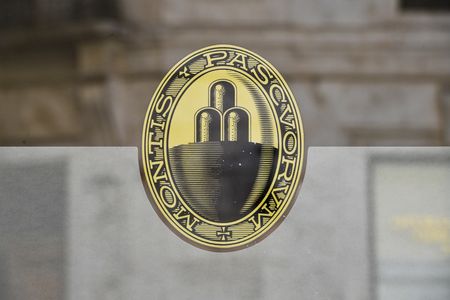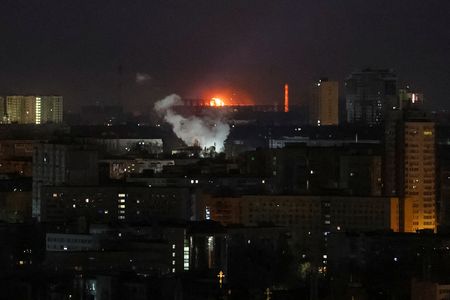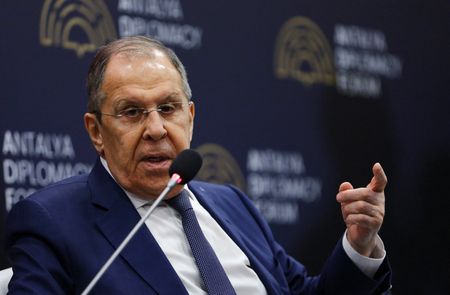By Sam Tabahriti and Alistair Smout
LONDON (Reuters) -Britain moved to take control of British Steel and keep its blast furnaces open on Saturday, as a minister told an emergency parliamentary session that a full nationalisation of the UK’s last maker of virgin steel was becoming increasingly likely.
The company, owned by China’s Jingye Group, employs 3,500 people at its Scunthorpe plant, whose future had been in question after the government and the company failed to agree a funding deal to switch to greener steel production.
The government recalled lawmakers, who had been on Easter recess, in order to pass a law enabling it to direct the company’s board and workforce, ensure they get paid, and order the raw materials to keep the blast furnace running.
Prime Minister Keir Starmer said that he was taking action to avert the imminent closure of the blast furnaces, which are operating at a loss of 700,000 pounds ($915,600) a day.
“The bill will go through today… and that means that we will then be in control of the site,” Starmer said on a visit to the steelworks.
He acknowledged that the emergency law was “pretty unprecedented”, but said it meant there would be a future for steel in Britain and that it was in the national interest.
The recall of parliament for a Saturday sitting during a recess is the first since the Falklands War in 1982. Addressing lawmakers, business minister Jonathan Reynolds said the bill would give more time to negotiate a permanent future for British Steel.
“A transfer of ownership to the state remains on the table, and it may well at this stage, given the behaviour of the company, be the likely option,” Reynolds told lawmakers, saying he still hoped to partner with the private sector to secure its long-term future.
“A failure to act today would prevent any more desirable outcome from even being considered.”
The bill cleared its initial stages in parliament’s House of Commons without anyone attempting to vote it down.
STRATEGY PENDING
The closure of the furnaces would leave Britain as the only G7 country unable to produce so-called virgin steel from iron ore, coke and other inputs.
British Steel was already struggling in an over-supplied global market before the rise in energy costs of recent years. U.S. tariffs of 25% on all steel imports, taking effect in March, delivered another blow.
The U.S. receives about 5% of British steel exports, worth 400 million pounds a year, according to industry body UK Steel.
Reynolds said the issues impacting British Steel went beyond those tariffs, though he would seek to negotiate to remove them.
The government had already earmarked 2.5 billion pounds for the steel industry, saying it would publish a strategy for the sector in spring 2025. Funding to keep the plant running would come from existing budgets, the government said.
Reynolds said Britain would be dependent on foreign imports if British Steel’s Scunthorpe furnaces were to close. UK Steel said it welcomed the proposed law, as did unions representing steelworkers.
If British Steel were nationalised it would be the biggest state rescue since a number of banks were taken into government hands in 2008.
Less carbon-intensive electric arc furnaces, which make new steel from scrap, are being built at Tata Steel’s Port Talbot site, following a government support package worth 500 million pounds.
The two blast furnaces at Port Talbot closed last year, and the new electric furnace will not start producing steel until late 2027 or early 2028.
($1 = 0.7645 pounds)
(Reporting by Alistair Smout and Sam Tabahriti; Additional reporting by Paul Sandle and Sarah Young; Editing by Jan Harvey)












